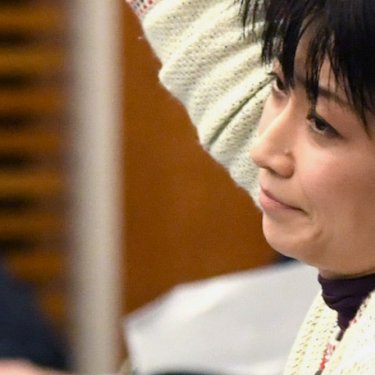Japan government must not judge the relevance of press questions

Reporters Without Borders (RSF) calls on Prime Minister Shinzo Abe to respect the Japanese public's right to information by requiring his team to respond to all journalists' questions, without exception.
During a press conference on February 26, 2019, Yoshihide Suga, the Chief Cabinet Secretary to Japanese Prime Minister Shinzo Abe, has publicly refused to answer questions from a Tokyo Shimbun reporter, Isoko Mochizuki, on the grounds that he was "not required to". This incident triggered a wave of protests from journalists' unions, the media and opposition parties, and prompted the launch of a petition that gathered more than 17,000 signatures.
Reporters Without Borders (RSF) calls on Prime Minister Shinzo Abe to respect the public's right to information and to ensure that his team answers all questions asked by journalists, without exception.
"Government officials are expected to serve the public and therefore have no right to select the questions asked by media and certainly not to judge their relevance”, insists Cédric Alviani, head of RSF’s East Asia office. “Journalists have an essential role to play in democracies and are entitled to ask any question they deem relevant in the interest of their readers."
This incident is the latest in a series of similar clashes between the Abe administration and the Tokyo Shimbun journalists. Mochizuki, who has been working for the regional newspaper since 2000 and is known for her straightforward questions, has particularly become the scapegoat of the government’s press services, and almost always sees her questions ignored or rejected.
In a statement issued last December that implicitly targeted this journalist, the Prime Minister's Office didn’t hesitate to ask the Japanese media to ensure that their questions are "fact-based" and "accurate", a request that nearly equals to an insult given the fact that these are two inner characteristics of journalistic work.
Japan ranked 67th out of 180 countries and territories in the 2018 RSF World Press Freedom Index.



